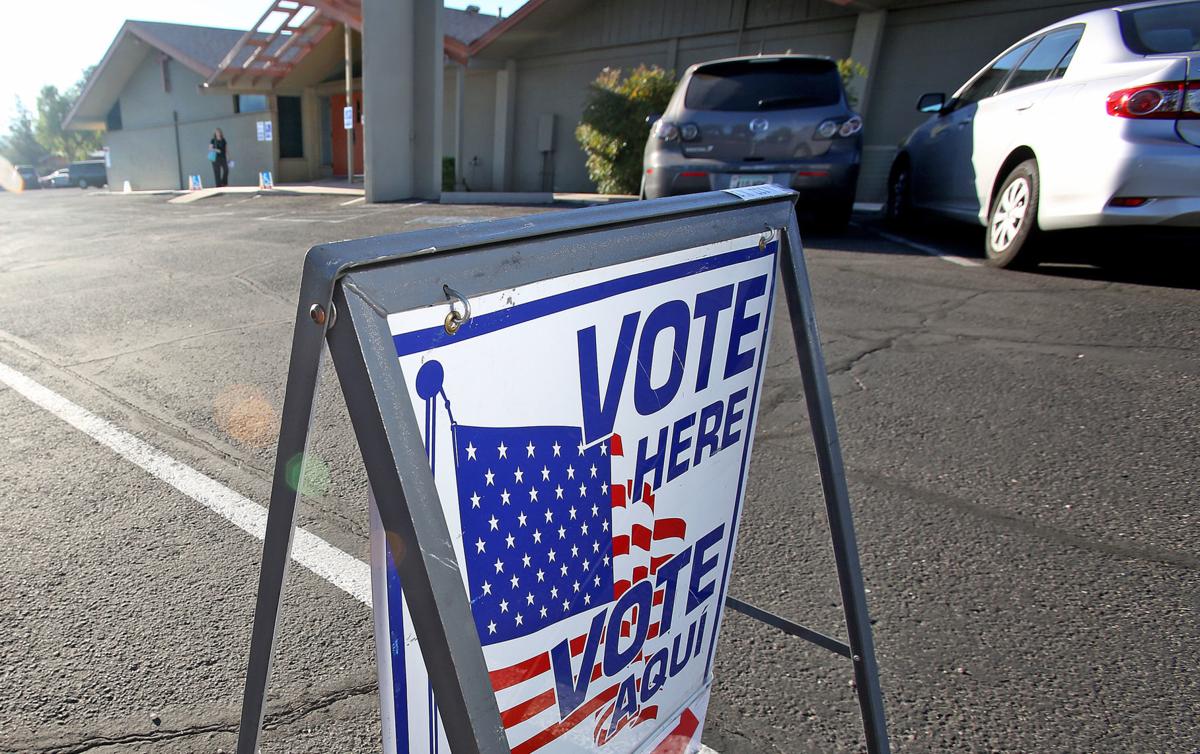PHOENIX — The Citizens Clean Elections Commission voted Friday to sue the Legislative Council, contending it’s trying to mislead voters about an upcoming ballot measure.
Tom Collins, the commission’s executive director, said the Legislative Council, made up of 10 Republicans and four Democrats, failed to include relevant information when it approved a description of a ballot measure for a voter pamphlet. The measure involves changes the Republican-controlled Legislature wants voters to approve in how the commission operates. And some of what the council did put in the description, Collins said, is flat wrong.
Most immediately, the lawsuit authorized unanimously by the bipartisan commission will seek to block the Secretary of State’s Office from using the description in the ballot pamphlet mailed out ahead of the November election to all households where registered voters live.
It would then be up to a court to determine if lawmakers complied with state law, which requires an “impartial analysis” of all ballot measures. A judge could order the Legislative Council to reconvene and rewrite the description.
The description at issue was adopted Thursday on a party-line vote by the Legislative Council.
Created by constitutional amendment
Voters decided in 1998 to set up a voluntary system of public financing of statewide and legislative elections. Under the Citizens Clean Elections Act, candidates who agree not to take private dollars are provided with funds generated from things like a surcharge on criminal, civil and traffic fines.
That 1998 ballot measure also established the commission to oversee the financing, and also empowered it to educate voters and to enforce campaign finance laws.
It is the enforcement provision that has gotten the commission crossways with some GOP lawmakers.
Republicans in the Legislature have voted to repeal many laws requiring that outside groups seeking to influence elections disclose their spending as well as the individuals financing those efforts. But the commission, created through voter-approved constitutional amendment, is exempt from — and beyond the reach — of legislative action. That leaves its campaign finance rules intact.
The upcoming ballot measure, Proposition 306, would eliminate the ability of the commission to enact its own rules. Instead, changes would have to be approved by the Governor’s Regulatory Review Council.
But Rep. Ken Clark, D-Tucson, said the description for the voter pamphlet does not mention the repeal of existing authority, but makes it sound like voters are being asked to give new rule-making powers to the commission.
Potentially more significant, Clark noted it does not tell voters that the Governor’s Regulatory Review Council is not some nonpartisan body but is made up of six people appointed by Republican Gov. Doug Ducey and a member of his Department of Administration.
There’s a history there. The Governor’s Regulatory Review Council voted two years ago to block the Clean Elections Commission from requiring financial disclosure of the sources of anonymous “dark money” to political campaigns. But the commission, citing its voter-given constitutional authority, simply ignored that ruling.
Proposition 306 would remove that constitutional exemption from GRRC purview.
Collins said there’s an even bigger issue with the ballot explanation approved by the Legislative Council. “It does not accurately describe what the commission does,” he said.
Voters also aren’t being told, he said, that Proposition 306 would make it illegal for publicly funded candidates to give any of that money to political parties or to outside groups that try to influence elections.
Collins said voters are not being told that the commission already has rules that allow such payments only when a candidate is buying a specific service from a party, such as a voter list. He said the commission even tightened its rules for auditing and tracking such expenditures.
This legal fight over the ballot explanation presumes that Proposition 306 will actually be on the November ballot.
A judge is set to hear arguments next month in a separate lawsuit which contends that lawmakers acted illegally in asking voters to approve it because it contains two separate subjects: stripping the commission’s independent rule-making authority and placing restrictions on how candidates can use their money.
The Arizona Constitution says ballot measures like these “shall embrace but one subject,” that lawsuit argues.





